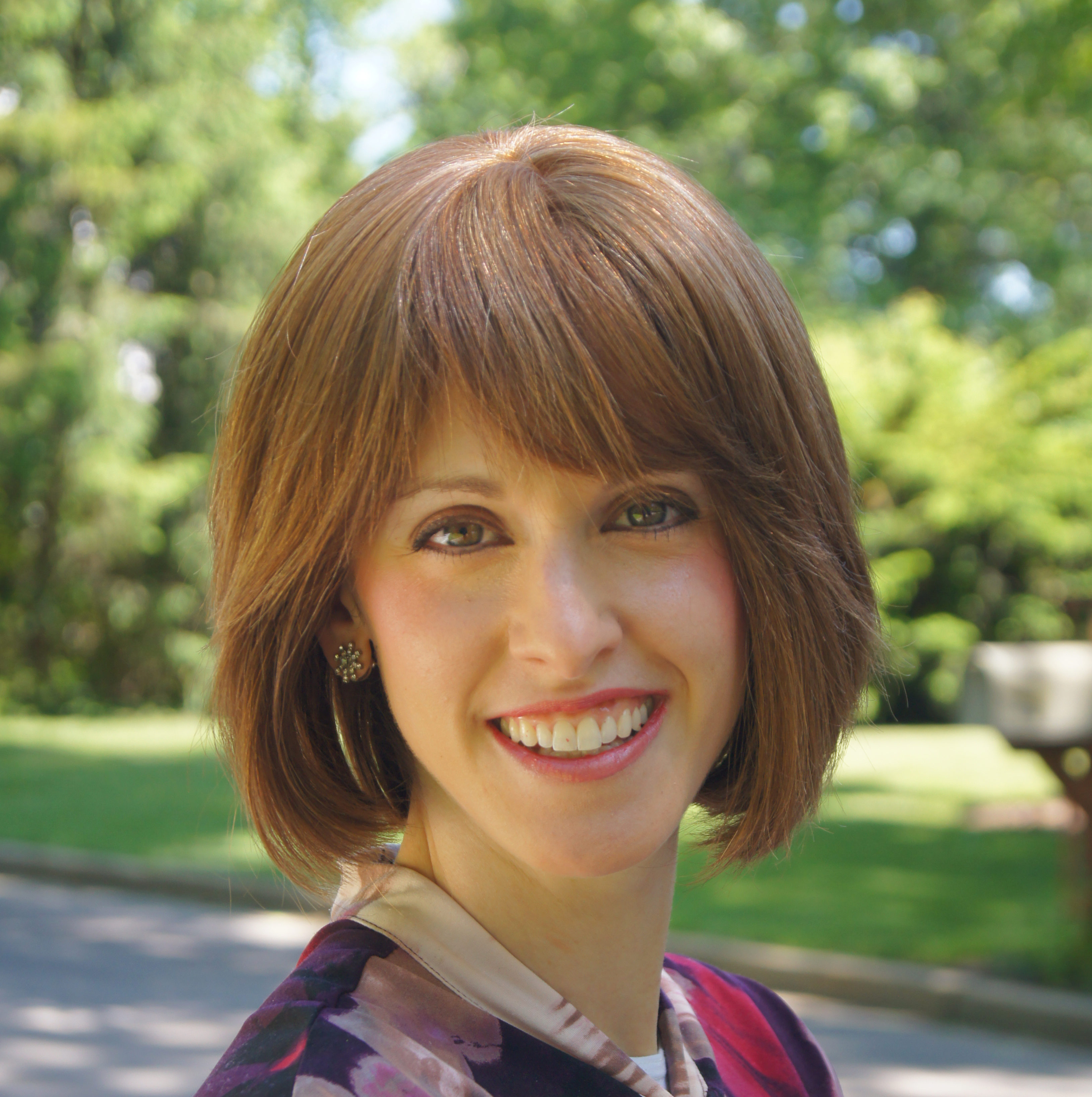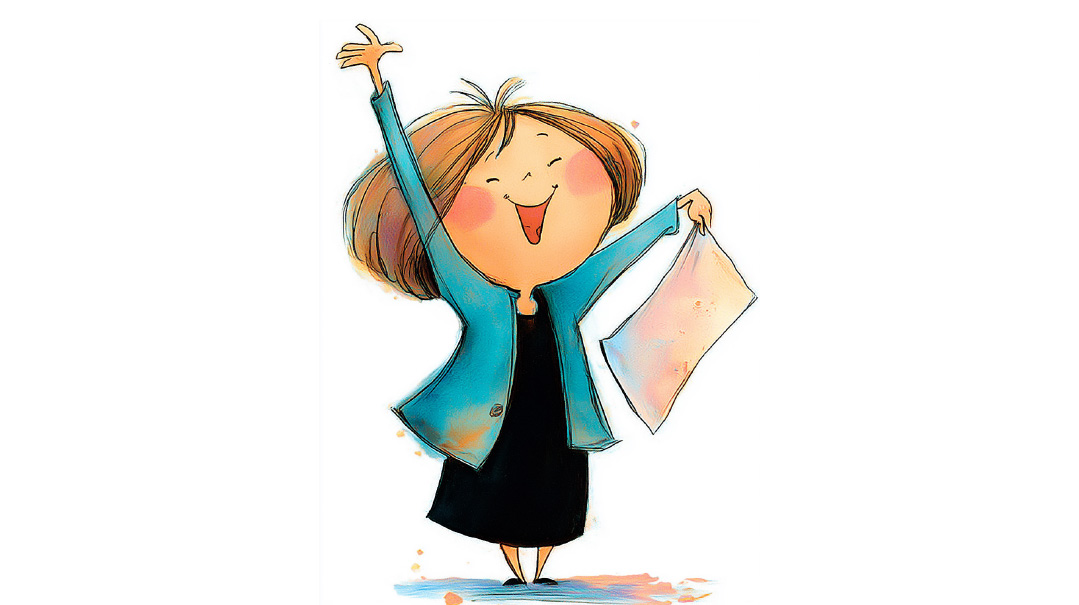The Checklist

“It’s not fair. You make me do such hard stuff. My morah said we can bring you your slippers or a drink of water. Now I’m not gonna be in the raffle”

I’m making rugelach for the Weinsteins’ bar mitzvah kiddush when the whole kibbud eim thing begins.
I’m working at the kitchen counter, rolling out the dough, and Avigdor walks in. I don’t pay much attention to him except to notice that he’s eating pretzels and crumbs are raining down on the kitchen floor.
“Ima,” Avigdor says, waving a white sheet of paper in my peripheral vision, “I need you to fill out my kibbud eim checklist.”
Checklist. Aha. Just when I thought we were finally finished with the homework hassle.
I sprinkle cinnamon and sugar across the pastry dough, glance at the paper, and then at the clock. Five fifty-three. Dassi had said she’d call around six. That gives me eight minutes. I feel the flutter of paper against the side of my face.
“Here, Ima.” Avigdor has somehow managed to slip himself under my elbow and squeeze into the space between me and the counter. “Look,” he says earnestly, “if I fill this out, I get into a raffle to win a prize. Here.” He shoves the paper under my nose. “Can you fill it out for me?”
“Excuse me.” I gently nudge his hand away. “I need a minute to finish this.”
Two minutes and 24 rugelach in the oven. Is that a record?
I wash my hands and take the paper from an impatient Avigdor. It’s a checklist, all right.
__I spoke respectfully to my mother
__I did something to help my mother
__I stood up for my mother when she came into the room
__I did not sit on my mother’s chair
Underneath, there’s an identical checklist to be filled out by his father.
I fish around for a pen in the junk drawer. “Okay,” I say, quickly checking items off. “You spoke respectfully. You didn’t sit on my chair. But I can’t check off for standing up or helping me, because you didn’t do those things.”
“Well, can you come into the dining room?” Avigdor asks. “And I’ll stand up for you?”
“No,” I say, resisting the urge to roll my eyes. Is this seriously supposed to be teaching kids to honor their parents? “That would be silly. You’ll just have to remember next time.”
“Okay.” He looks down at his list, “Well… I still need to help you. Can I help you make the rugelach?”
“Sorry, zeeskeit, they’re already in the oven. You can wash the mixing bowl for me.”
He looks at me in shock. “I don’t know how to do that.”
“You just wash it. With a sponge and soapy water.”
“That’s too hard. Can I do something else?”
“Hmmm… you can clean your room.”
“Ima!” He stamps his foot. “That’s even harder! How about getting you a drink? That’s what my morah gave for an example.”
“Avigdor.” I wave my hand toward the sink. “I’m standing right next to the sink. If I need a drink, I’ll just take one.”
“Well, I don’t want to clean up my room!”
“Then don’t. You asked how you can help me and that’s the answer.”
He pouts and little tears prick the corners of his eyes. “It’s not fair. You make me do such hard stuff. My morah said we can bring you your slippers or a drink of water. Now I’m not gonna be in the raffle.”
I close my eyes for a moment. “Okay, let’s make a deal,” I say in a gentler tone. “How about you clean up just one thing in your room. Like the Uno cards. Or the puzzle pieces. Pick one.”
“Okay.” He brightens. “I’ll do the puzzle pieces.”
I hear his feet padding up the stairs.
The phone rings. Perfect timing. It’s Dassi.
I pick up. “Hi, Dass.”
“Hi, Leah.”
“How are you feeling?” It’s been four days since Dassi fractured her collar bone.
“Okay,” Dassi says, “Still in a lot of pain. I’m basically out of commission. My girls are running the show. But between their courses and work and shidduchim, they aren’t exactly enjoying it.” She gives a little laugh.
“You poor thing.” I sigh, “I wish I could help.”
“Thank you, Leah. Shimon told me you’d suggested Mommy comes live with you for a few weeks while I recover.”
“Yes, we felt that would be the best way we could help.”
“Thank you so much. We’re going to take you up on your offer.”
“Oh,” I say, “Good.”
The oven is beeping. I peek inside. Twenty-four golden rugelach shimmer in the heat. I turn the oven off and finish my conversation with Dassi, finalizing the details of Mommy’s travel plans. She’ll be coming the next day with my brother-in-law, she’ll sleep in the spare room on the first floor. I make a mental note to dig up a nice set of linen for her. Then I slide the tray of rugelach out of the oven and head upstairs to begin the bedtime routine.
It takes three more grueling rounds of checklist negotiations until Avigdor and the rest of the kids are in bed, making me wonder what terrible crime I’ve committed during my lifetime to have brought this torturous honor upon myself.
***
At nine forty-five, Shimon is home. As I serve him dinner, I give vent to my frustrations. “This kibbud av v’eim project is the most ridiculous thing I’ve ever had to do as a parent!” I seethe as I shove the paper across the table. “Look at this! I mean, this morah clearly has no kids of her own, or she’d never dream this up. I think I should call her and give her a piece of my mind!”
Shimon looks at the paper. There’s an oily smudge in the corner where it came in contact with the rugelach dough. His lips twitch and then give way to a smile.
“A kibbud av v’eim checklist,” he says. “Sounds very nice, in theory.”
“You can laugh,” I say tightly. “You didn’t have to spend half your evening negotiating the terms of ‘helping’ with a six-year-old. And then another 20 minutes after he was supposed to be in bed, figuring out what he can do to help Abba, who wasn’t even home yet!”
Shimon laughs out loud. “So what did he do to ‘help’ me?”
“Polished your Shabbos shoes,” I say flatly, and he lets out another bark of laughter. “Instead of collecting laundry and putting kids to bed and cleaning up, I was digging around our closet for your Shabbos shoes and the polish. All because of some whimsical idea that this idealistic morah dreamed up!”
I stare at Shimon, and suddenly my eyes fill with tears.
“Leah?” his smile disappears in a flash. “Are you okay?”
“Please don’t laugh,” I whisper. “Please.”
I cover my face, feeling red hot shame and anger rush to my cheeks.
“I’m sorry,” he murmurs. “I didn’t mean to make fun. It must have been so frustrating.”
“Do you realize,” I whisper, “tomorrow Mommy‘s coming to stay, and I have no idea how I’m going to manage.”
It’s hard to be the youngest child of an aging mother. Hard to open my home and heart, to squeeze the last drop of energy from my depleted resources. I let my head drop to the table, and spend a few minutes alone with my misery.
Shimon quietly finishes his dinner. When I lift my head, I see him begin to clear the table. And I think to myself, my husband is a good man. It’s two more hours before I drop into bed, exhausted. The baby’s asleep and the guest bedroom is made up with a set of matching linens that I managed to pull together.
“You know,” Shimon says quietly, before I drop off to sleep, “the ikkur mitzvah of kibbud av v’eim is not for young children. It’s for adult children, honoring their parents. That’s the actual mitzvah. Everything else is just education, in preparation for that.”
“I know,” I mumble. My pillow is soft and deep and wonderful, and I am horizontal at last. Tomorrow will come when it comes; checklists and kids and Mommy and all. Right now, darkness and nothing are the most perfect things I know. I burrow into my blankets, close my eyes, and let the night take me.
***
The next day I have a hard time concentrating at the office. Dassi warned me that Mommy’s grown even more forgetful lately, and that she’s become very sensitive. But Shimon’s words bolster me; it’s a mitzvah for me to honor my mother.
I leave work early and cook a special dinner: mushroom meatloaf, string beans, and mashed potatoes, and spaghetti for the kids. I tell the kids that Bubby’s coming, and have them color welcome signs for her door.
“I don’t want Bubby to come,” Nachi pouts. “She’s old. What if she dies?”
I straighten the guest room one more time and apply a bit of makeup, put on my sheitel.
“Is it Shabbos?” Avigdor asks, confused.
And then, finally, my brother-in-law pulls up in his car, and I go out to greet Mommy. My mother smiles and as I embrace her I smell the soft fragrance I’ve associated with her from my earliest childhood. Suddenly my nervousness falls away and I’m excited. We all go inside to a lively dinner and we manage to get through it without Nachi asking my mother if she’s going to die. She sits comfortably on the couch while I plow through the kids’ homework and fill out the dreaded checklist.
She reads a book to Nachi and Avigdor at seven o’clock, and asks me what the baby’s name is and if it’s a girl or a boy. I bite my lip and remind her that it’s Baila and she’s a girl. Miraculously, the kids listen nicely when it’s time for bed. Day one with Bubby is a success. Perhaps I can get through this in one piece.
***
On Friday morning I remember the Weinstein’s Kiddush and prepare the rugelach before work. I lay them out attractively, wrap the platter in plastic, and say goodbye to Mommy. I’ll have Shimon drop off the platter later; I’m already running late.
At four in the afternoon I have one kid in the bathtub and Shimon is upstairs in the shower. The Shabbos food is warming in the oven and I’m working on the cholent while the baby is napping, keeping one eye on the open bathroom door. When Shimon comes downstairs in his shiny polished Shabbos shoes, I gesture toward the platter that I left on top of the toaster oven this morning.
“Can you bring it to the Weinsteins on your way to shul? They’re making a bar mitzvah this week.”
“Sure.” Shimon lifts the platter and sniffs it appreciatively. “Yum.”
I stop what I’m doing and look at the plastic wrap. Something is very, seriously, wrong.
“Shimon!”
“What?”
“Someone ate half the rugelach!”
He looks at it more carefully. “Oh my, yes, I see.”
“Those kids are in serious trouble!” I fume.
“It’s not so bad, Leah, you can still send it. Just spread out the rugelach more.”
I snatch the platter from his hands. “One minute. I’m getting to the bottom of this.”
“Avigdor!” I rap on the bathroom door. “Avigdor!”
“Huh?”
“Did you eat from the rugelach platter?”
“The what?”
“The plate of rugelach that I left, wrapped up in the kitchen? Did you eat any?!”
“No.”
“Emes?”
“Emes.”
When I question Nachi, he innocently shakes his head no. The baby certainly couldn’t have done it. So who— a sudden thought occurs to me. I knock gently on Mommy’s bedroom door and walk in.
There she sits, a chair pulled up to the little table in the corner, an empty teacup and a plate covered with tell-tale crumbs.
“Hello Leah’la.” Mommy smiles.
I stare at her, at the soft turban and the crinkling warm eyes, and the lines of wrinkles around them. My heart pounds in my chest, and I do nothing but stare and stare and stare at this face, this face that is my mother’s. For no one knows more than me what a mother is, what a mother does. A mother who feeds, clothes, and bathes. A mother who endures tantrums, and plows through homework, and teaches and educates, and kisses goodnight even when she has no strength left. A mother who held me when I cried, and soothed me in the night, and maintained her sanity through my crazy teenage years.
A mother who returned to me when she was old and forgetful, and unknowingly, ate my rugelach.
And then I’m laughing and crying and hugging my mother, and she’s smiling confusedly, and hugging me back, and I know there was no better purpose for those rugelach than to gift this mother who gave me everything and whom I can scarcely repay.
And then I leave and close the door behind me. Shimon waits while I rearrange the remaining rugelach on a smaller plate. Shabbos is coming and I need to hurry. I finish up the baths, dress the boys, run and get the baby who’s woken from her nap.
And then I spot it, that white piece of paper lying on the counter, that smudge of grease in the corner. Gently, carefully, I wipe the teardrops from my eyes and then gently, carefully, pat my fingers dry against the kibbud av v’eim checklist.
(Originally featured in Family First, Issue 624)
Oops! We could not locate your form.













